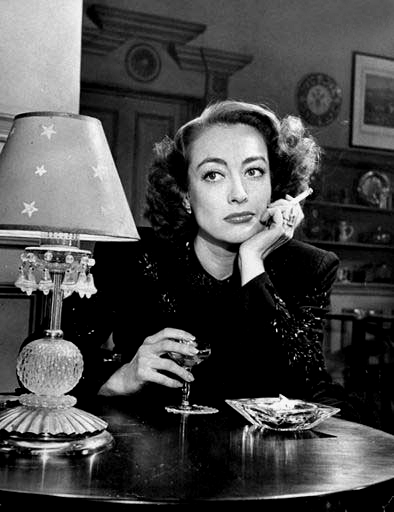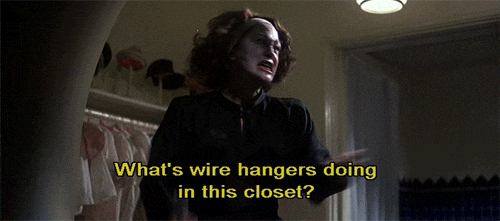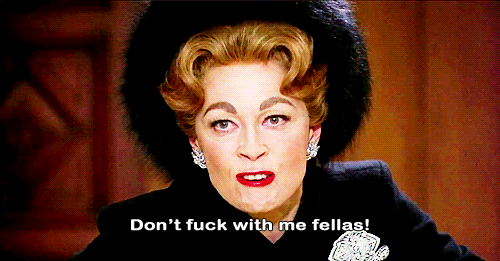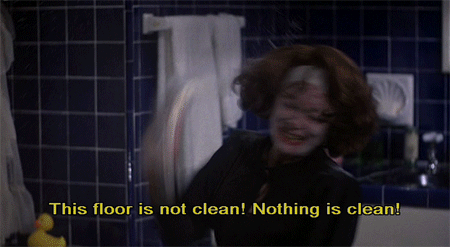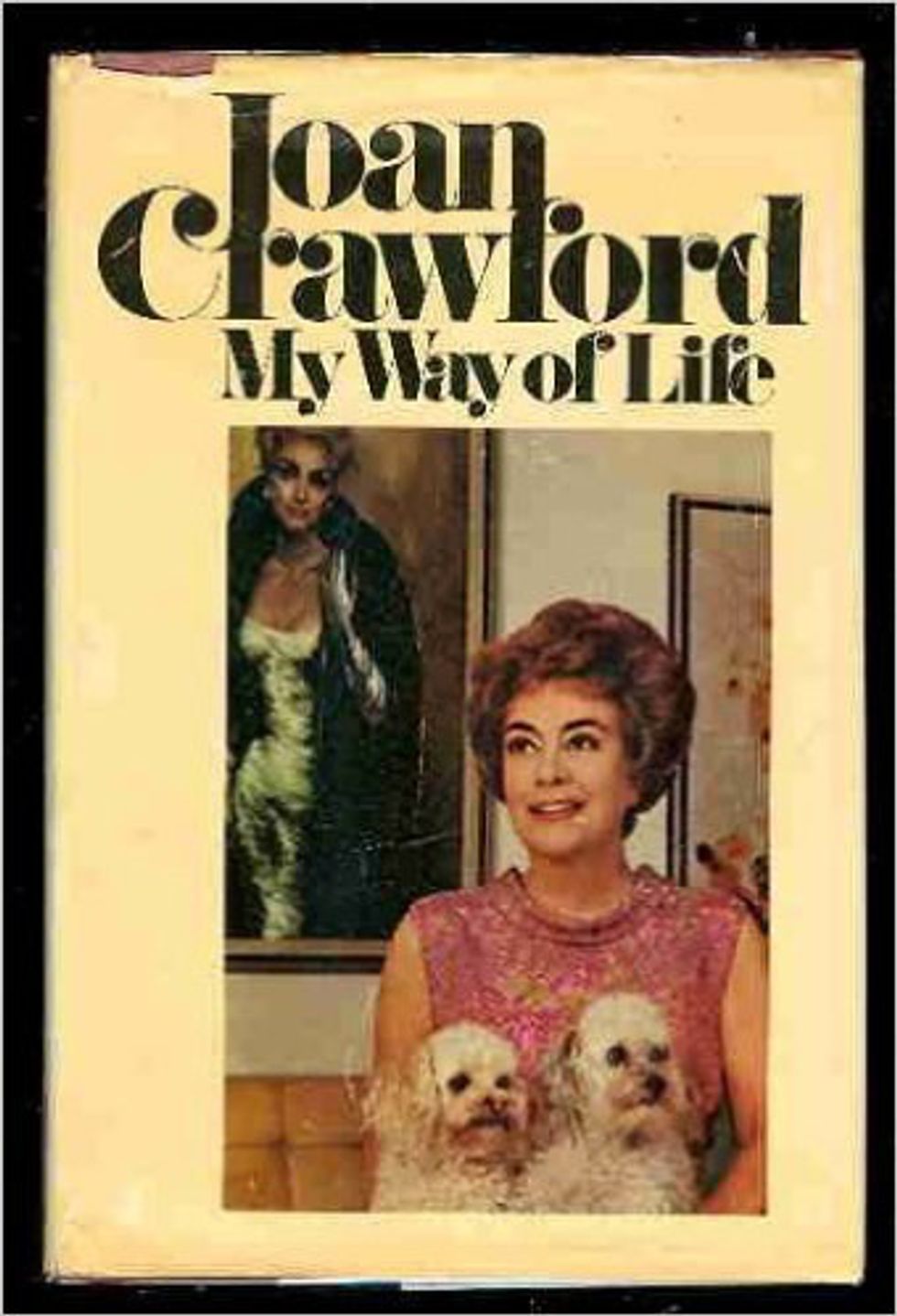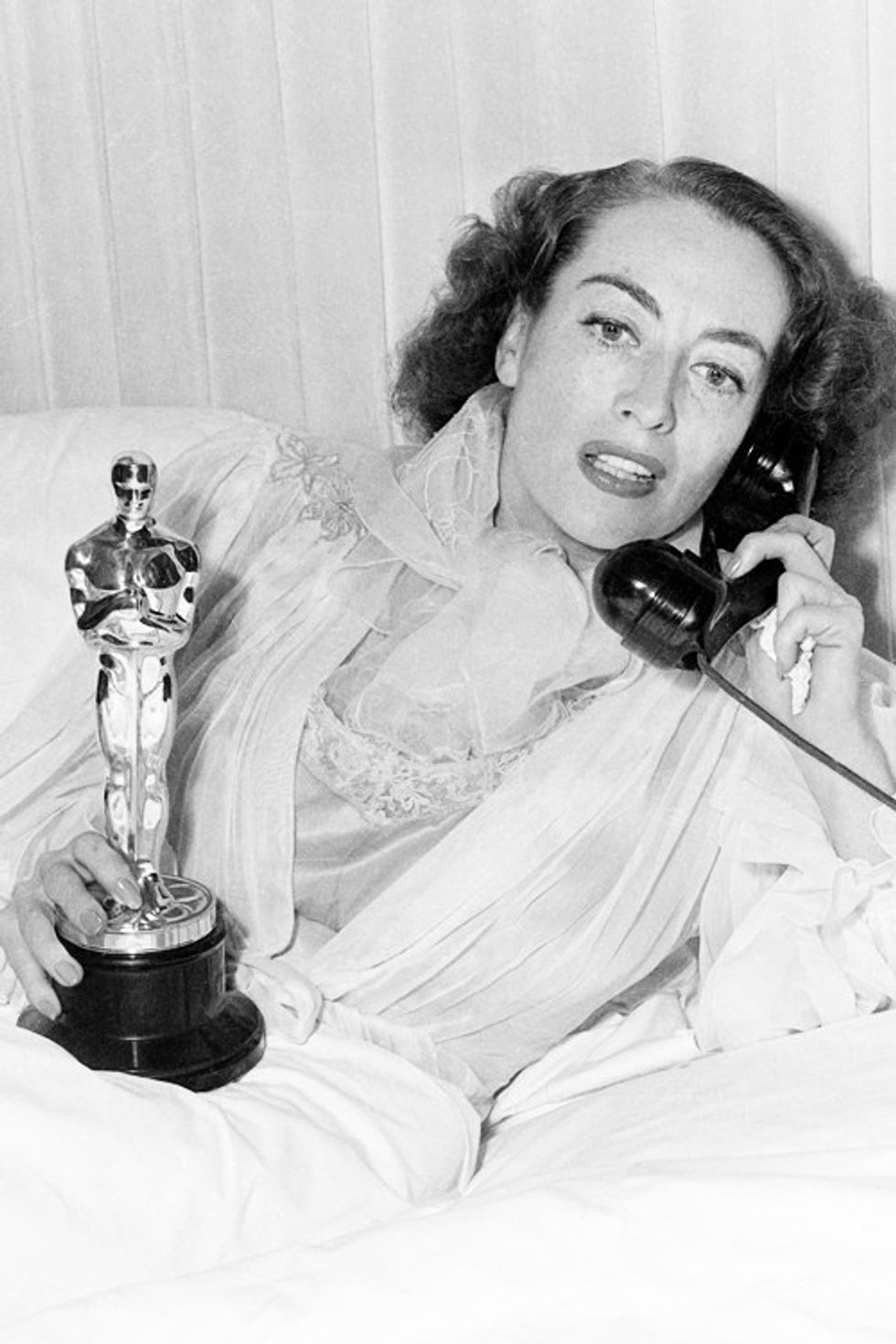This is Joan Crawford.
She was one of the 20th century's most successful and famous film stars, but her reputation was ruined after her death by her adopted daughter's memoir "Mommie Dearest", which revealed the alleged and often contested abuse Crawford inflicted on her children. It was later made into a movie which cemented her legacy as a drunken, obsessive-compulsive monster who loathed wire hangers.
I recently managed to track down an (affordable) copy of her 1971 book "My Way of Life", a guide to better living. In it, she imparts her 60+ years of wisdom, offering the reader invaluable lessons in parenting, marriage, careers, and hosting.
To put it simply, she writes like your grandmother if your grandmother were Gwyneth Paltrow. She seems completely disassociated with reality and writes as if she's never met anyone who makes less than seven figures. Her tips, being 45 years old, are dated, offensive, and hilariously impractical, even for a millionairess who hit her peak in the 1940s. These are but a few of the numerous instances of her literary insanity.
On women in the workforce: "Men put up all kinds of objections, all of which cover up their real, subconscious fear that 'she'll come home too tired and won't want to go to bed with me.' They wonder what's going to happen to them sexually. But the fact is that when a woman feels she's done a good job and accomplished something, she's charged. She's ready for sex. Maybe he'll be too tired that night. And maybe he'll get raped!"
On marriage: "Such a pattern of living calls for the same kind of executive ability a man has to develop in his office. It's not easy. It's not easy at all to run a house - small, or, as in my case, large ... give the children all the attention they should have, adjust to day-to-day crises, and be cool, collected, and captivating at six o'clock. Not only must the children and housekeeping be dealt with and finished, the wife should also emerge at this hour "finished" - in the sense that she has all her beauty treatments behind her and is groomed, fragrant, and looking ready for an evening with her favorite beau."
On the joys of giving: "People will say they're not Joan Crawford and can't afford trainloads of caviar ... If it's [your husband's] birthday and he loves caviar, skip the hairdresser a couple of times. Give up a hat that you don't need. You'll find that you won't be giving up anything at all. You'll have the joy of giving to."
On closet space: "That apartment had tall ceilings and I was able to have a double-decker dressing room, with my out-of-season clothes stored on top. Then twice a year I'd switch them around ... my present ceilings aren't high enough for that double-decker arrangement. But if you can do it, it's a very practical device and a space-saver."
On entertaining: "The best parties are a wild mixture. Take some corporation presidents, add a few lovely young actresses, a bearded painter, a professional jockey, your visiting friends from Brussels, a politician, a hairdresser, and a professor of physics, toss them all together, and try to get them to stop talking long enough to eat! It's especially important to have all age groups. I've never noticed a generation gap. Of course I wouldn't want to have hippies come crawling in with unwashed feet, but all the younger people I know are bright and attractive and have something to say. They also dress like human beings. They love to listen, too. They make wonderful guests."
On parenting: "I discovered that I must have instilled a few of the social graces in the children when I let the twins take charge of their own ninth birthday party aboard the Andrea Doria. They invited the whole of the first class and decided on the menu by themselves. There was vodka and caviar, a clear soup, New York cut steak with a large selection of vegetables, a salad, and cheese trays - accompanied by a good red wine. Finally there was a tremendous birthday cake for all the guests, and Dom Perignon. I didn't suggest a bit of it to them. It was entirely their own menu."
On feminism: "It's how [women] move into [the business world] that counts! Men who are prejudiced against women in executive positions have usually had a bad experience with one who swaggered in with a chip on her manly shoulder believing that she had to fight her way up, and fight men to do it. A gal like that can make it tough for the rest of us. Many in the women's liberation movement have done that - but few of them are executives and few are very good to look at. They have nothing to lose but their uncombed hair."
On fashion: "I feel as if clothes are people. When I buy a dress, or buy the fabric to have one made, that's a new friend. Am I to let it hang there and not give it warmth and affection? Course not! People love to do my clothes because I take such good care of them. I have a tremendous respect for fabrics."
On physique: "I sit on hard chairs - soft ones spread the hips."
"Never let your husband see you exercising."
On weight loss: "But the best condition I was ever in was when I was doing What Ever Happened to Baby Jane? in a wheelchair. I had to wheel myself back and forth, turn quickly, and I was the thinnest I've been in years. I weight only 119 pounds. And firm and hard as a brickbat. Get a wheelchair and try doing your housework in it!"
"Regular exercise, all alone, can be boring. If you just can't schedule it for yourself, organize a little neighborhood club ... and compete. Competition is often just the stimulus you need ... a woman will give up anything - from a fudge sundae to a dry martini or a grilled-cheese sandwich - to beat her fellow club members to the slim finish. She may lose a friend or two, but she'll gain loveliness, and her husband's pride and admiration. That's worth a couple of fat friends!"
On dessert: "I did eat ice cream once."
On haircare: "I pull my hair gently to encourage growth, too."
In the 35 years since Mommie Dearest was shown in theaters, Joan Crawford's legacy has been dragged through the mud, and while this book is a 224 page joke completely at her expense, reading between the lines, one can't help but feel a kind of pity for her - and a revulsion at the thought of having her as a mother. Though she came from an abusive home and clawed her way up the ladder of success, she very obviously had some kind of mental health problem which manifested itself in an unhealthy competitiveness and cleanliness, all of which are subtly evident in her guide to luxurious living.




